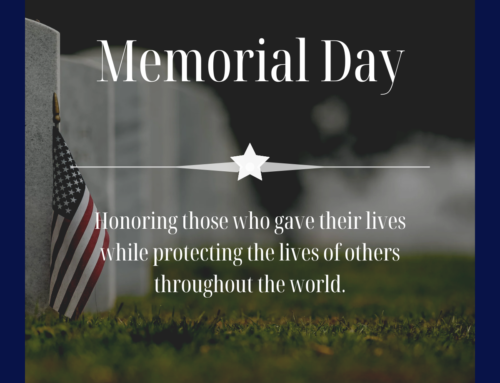
Military Friendly School
Photo Credit: Monkey Business Images/Shutterstock
Friday, June 17, 2022 –
How many times have you heard academic institutions use the phrase ‘military friendly’ school? The term has become so commonplace that it has become somewhat cliché. What does it mean for a college or university to earn the military friendly designation? How do the needs of veterans and active-duty service members differ from those of traditional students?
Military Friendly: The Label
Many institutions declare themselves as military friendly without fully comprehending the diversity that constitutes the military-affiliated population. Are organizational leaders aware that the military community is composed of veteran and active-duty service members and includes reserve and guard members, military spouses, and children? Each group has specific needs, and schools must recognize the requirements to support them collectively and independently. In researching content research for this article, I selected ten Tier 1 schools and reviewed their military affairs/veteran resource pages. What I found was that most are filled with generic information, including links to the Department of Veteran Affairs, orientation guides, and local student veteran associations. Honestly, prospective students could easily Google those topics, so what other benefits does the university offer?
Military Friendly® explains the designation as the standard that measures an organization’s commitment, effort, and success in creating sustainable and meaningful benefit for the military community. Let’s break down this MBA-speak into what that means for an institution of higher learning. Countless bodies publish lists of “military friendly schools” and “best colleges and universities for veterans,” but what metrics are being assessed to make those determinations? Is it based on whether the school offers programs such as VetSuccess on Campus (VSOC) and the Yellow Ribbon Program or providing a veterans lounge stocked with complimentary coffee and protein bars? If these are the types of initiatives that your organization lauds as the pinnacle of your military friendly programs, then you may need to reassess your position on supporting the military community. While it’s true that not all institutions wish to improve recruitment in the military community, those that carry the military friendly designation should seek to not only meet the baseline criteria for the label but work to exceed it.
Military Friendly: On Campus Versus Virtual Instruction
Several schools focus their military-friendly efforts strictly on veterans attending traditional, in-person classes. While this effort is appreciated, concentrating on a small portion of the overall military community is somewhat of a disservice to those still donning the uniform and family members. Organizations may find it easier to integrate veterans into on-campus instruction and activities. Still, those institutions that present themselves as military-friendly should attempt to tailor some level of services to meet the needs of the entire military community. Let’s review some methods whereby universities and colleges can expand their offerings to accommodate most military-affiliated individuals.
Enhancing one’s online programs is significant in delivering options to active-duty military members, as their schedules often do not allow for in-person instruction. During my over eighteen years of service, I have completed four degrees through distance learning at well-regarded institutions. Now during my doctoral program at Liberty University, I take notice of the amount of active-duty personnel at the start of each course during class introductions. My current school attracts many military personnel through various offerings not available at other universities, such as assessing course credit through evaluation of a professional portfolio. This goes beyond the standard review of one’s professional military education transcript to also recognize a service member’s experience gained in the performance of daily duties and responsibilities assigned based on rank and military occupational specialty. Additionally, the institution offers doctoral credits at an extreme discount for military members and first responders following the completion of a previous degree or doctoral certificate with Liberty. Many service members become aware of academic institutions based on word of mouth from their colleagues, and in my case, it was no different.
Military Friendly: Via Word of Mouth
After completing my associate’s and bachelor’s degrees from Troy University and an MBA from Brenau University, both of which I consider ‘military friendly,’ I was looking to continue my educational journey by pursuing a doctorate in business administration. Coincidentally, I was attending a military course with a then professional acquaintance, whom I now consider a close friend. She provided some personal insight on the benefits of attending Liberty. She emphasized that while the program was entirely online, the curriculum was rigorous, and most of her professors had invested in her academic success. This friend graduated with her Ed.D. last month and will soon move into a position wherein she will be charged with oversight of a program of study for an entire cohort. The experience gained from her new job, combined with her academic achievements, will allow her to transition into a career in higher education following her retirement from the military.
Military Friendly: Considering the Lifestyle and Profession of Military Members
Before selecting Liberty University, I researched many DBA programs. I favored another school but ultimately decided that the university could not meet my needs. The critical determining factor was attendance at a mandatory summer residency in the second and third years of the program. I was not opposed to the residency, but the timing was awful as the summer is the peak season for permanent change of station (PCS) moves. During this period, offices are frequently short-staffed as organizational members depart, and there is usually a significant gap between their departure and the replacement’s arrival. Additionally, suppose the service member is part of the PCS cycle. In that case, they are forced to utilize a substantial amount of accrued leave to cover the residency period, time allotted for the move, and any summer vacation they have planned with their family. This is in addition to the requirement of finding new housing accommodations and settling in at the new location. This would be complete chaos!
The military community does not want special treatment. It is quite the opposite. We only wish that academic institutions would recognize that our needs and experiences differ from the general public’s. In deeming organizations as military-friendly, institutions must be willing to adjust their current operations to fit the comprehensive military lifestyle.
This article is republished from HigherEdMilitary under a Creative Commons license. Read the original article.




![LinkedIn Recommendations [Preserve Them!]](https://visiontopurpose.com/wp-content/uploads/2024/03/LinkedIn-Recommendations-1-500x383.png)



